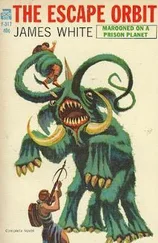James White - The Eighteen Christian Centuries
Здесь есть возможность читать онлайн «James White - The Eighteen Christian Centuries» — ознакомительный отрывок электронной книги совершенно бесплатно, а после прочтения отрывка купить полную версию. В некоторых случаях можно слушать аудио, скачать через торрент в формате fb2 и присутствует краткое содержание. Жанр: foreign_prose, История, foreign_edu, foreign_antique, на английском языке. Описание произведения, (предисловие) а так же отзывы посетителей доступны на портале библиотеки ЛибКат.
- Название:The Eighteen Christian Centuries
- Автор:
- Жанр:
- Год:неизвестен
- ISBN:нет данных
- Рейтинг книги:4 / 5. Голосов: 1
-
Избранное:Добавить в избранное
- Отзывы:
-
Ваша оценка:
- 80
- 1
- 2
- 3
- 4
- 5
The Eighteen Christian Centuries: краткое содержание, описание и аннотация
Предлагаем к чтению аннотацию, описание, краткое содержание или предисловие (зависит от того, что написал сам автор книги «The Eighteen Christian Centuries»). Если вы не нашли необходимую информацию о книге — напишите в комментариях, мы постараемся отыскать её.
The Eighteen Christian Centuries — читать онлайн ознакомительный отрывок
Ниже представлен текст книги, разбитый по страницам. Система сохранения места последней прочитанной страницы, позволяет с удобством читать онлайн бесплатно книгу «The Eighteen Christian Centuries», без необходимости каждый раз заново искать на чём Вы остановились. Поставьте закладку, и сможете в любой момент перейти на страницу, на которой закончили чтение.
Интервал:
Закладка:
|A.D. 81.|
With the exception of the brief period between the years 70 and 81, the whole century was spent in suffering and inflicting pain. The worst excesses of Nero and Caligula were now imitated and surpassed. The bonds of society became rapidly loosened. As in a shipwreck, the law of self-preservation was the only rule. No man could rely upon his neighbour, or his friend, or his nearest of kin. There were spies in every house, and an executioner at every door. An unconsidered word maliciously reported, or an accusation entirely false, brought death to the rich and great. To the unhappy class of men who in other times are called the favourites of fortune, because they are born to the possession of great ancestral names and hereditary estates, there was no escape from the jealous and avaricious hatred of the Emperor. If a patrician of this description lived in the splendour befitting his rank—he was currying favour with the mob! If he lived retired—he was trying to gain reputation by a pretence of giving up the world! If he had great talents—he was dangerous to the state! If he was dull and stupid—oh! don’t believe it—he was only an imitative Brutus, concealing his deep designs under the semblance of fatuity! If a man of distinguished birth was rich, it was not a fitting condition for a subject—if he was poor, he was likely to be seduced into the wildest enterprises. So the prisons were filled by calumny and suspicion, and emptied by the executioner. A dreadful century this—the worst that ever entered into tale or history; for the memory of former glories and comparative freedom was still recent. A man who was sixty years old, in the midst of the terrors of Tiberius, had associated in his youth with the survivors of the Civil War, with men who had embraced Brutus and Cassius; he had seen the mild administration of Augustus, and perhaps had supped with Virgil and Horace in the house of Mæcenas. And now he was tortured till he named a slave or freedman of the Emperor his heir, and then executed to expedite the succession. There was a hideous jocularity in some of these imperial proceedings, which, however, was no laughing-matter at the time. When a senator was very wealthy, it was no unusual thing for Tiberius and his successors to create themselves the rich man’s nearest relations by a decree of the Senate. The person so honoured by this graft upon his family tree seldom survived the operation many days. The emperor took possession of the property as heir-at-law and next of kin; and mourned for his uncle or brother—as the case might be—with the most edifying decorum.
But besides giving the general likeness of a period, it is necessary to individualize it still further by introducing, in the background of the picture, some incident by which it is peculiarly known, as we find Nelson generally represented with Trafalgar going on at the horizon, and Wellington sitting thoughtful on horseback in the foreground of the fire of Waterloo. Now, there cannot be a more distinguishing mark than a certain great military achievement which happened in the year 70 of this century, and is brought home to us, not only as a great historical event in itself, but as the commencement of a new era in human affairs, and the completion of a long line of threats and prophecies. This was the capture and destruction of Jerusalem. The accounts given us of this siege transcend in horror all other records of human sorrow. It was at the great annual feast of the Passover, when Jews from all parts of the world flocked to the capital of their nation to worship in the Temple, which to them was the earthly dwelling-place of Jehovah. The time was come, and they did not know it, when God was to be worshipped in spirit and in truth. More than a million strangers were resident within the walls. There was no room in house or hall for so vast a multitude; so they bivouacked in the streets, and lay thick as leaves in the courts of the holy place. Suddenly the Roman trumpets blew. The Jews became inspired with fanatical hatred of the enemy, and insane confidence that some miracle would be wrought for their deliverance. They deliberated, and chose for their leaders the wildest and most enthusiastic of the crowd. They refused the offers of mercy and reconciliation made to them by Titus. They sent back insulting messages to the Roman general, and stood expectant on the walls to see the idolatrous legions smitten by lightning or swallowed up by an earthquake. But Titus advanced his forces and hemmed in the countless multitude of men, and women, and children—few able to resist, but all requiring to be fed. Famine and pestilence came on; but still the mad fanatics of the Temple determined to persevere. They occasionally opened a gate and rushed out with the cry of “The sword of the Lord and of Gideon!” and were slaughtered by the unpitying hatred of the Roman soldiers. Their cruelty to their prisoners, when they succeeded in carrying off a few of their enemies, was great; but the patience of Titus at last gave way, and he soon bettered the instruction they gave him in pitilessness and blood. He drew a line of circumvallation closer round the city, and intercepted every supply; when deserters came over, he crucified them all round the trenches; when the worn-out people came forth, imploring to be suffered to pass through his ranks, he drove them back, that they might increase the scarcity by their lives, or the pestilence by adding to the heaps of unburied dead. Dissensions were raging all this time among the defenders themselves. They fought in the streets, in the houses, and heaped the floor and outcourts of the Temple with thousands of the slain. There was no help either from heaven or earth; eleven hundred thousand people had died of plague and the sword; and the rest were doomed to perish by more lingering torments. Nearest relations—sisters, brothers, fathers, wives—all forgot the ties of natural affection under this great necessity, and fought for a handful of meal, or the possession of some reptile’s body if they were lucky enough to trace it to its hiding-place; and at last—the crown of all horrors—the daughter of Eleazer killed her own child and converted it into food. The measure of man’s wrong and Heaven’s vengeance was now full. The daily sacrifice ceased to be offered; voices were audible to the popular ear uttering in the Holy of Holies, “Let us go hence.” The Romans rushed on—climbed over the neglected walls—forced their way into the upper Temple, and the gore flowed in streams so rapid and so deep that it seemed like a purple river! Large conduits had been made for the rapid conveyance away of the blood of bulls and goats offered in sacrifice; they all became choked now with the blood of the slaughtered people. At last the city was taken; the inhabitants were either dead or dying. Many were crushed as they lay expiring in the great tramplings of the triumphant Romans; many were recovered by food and shelter, and sold into slavery. The Temple and walls were levelled with the ground, and not one stone was left upon another. The plough passed over where palace and tower had been, and the Jewish dispensation was brought to a close.
History in ancient days was as exclusive as the court newsman in ours, and never published the movements of anybody below a senator or a consul. All the Browns and Smiths were left out of consideration; and yet to us who live in the days when those families—with the Joneses and Robinsons—form the great majority both in number and influence, it would be very interesting to have any certain intelligence of their predecessors during the first furies of the Empire. We have but faint descriptions even of the aristocracy, but what we hear of them shows, more clearly than any thing else, the frightful effect on morals and manliness of so uncontrolled a power as was vested in the Cæsars, and teaches us that the worst of despotisms is that which is established by the unholy union of the dregs of the population and the ruling power, against the peace and happiness and security of the middle class. You see how this combination of tyrant and mob succeeded in crushing all the layers of society which lay between them, till there were left only two agencies in all the world—the Emperor on his throne, and the millions fed by his bounty. The hereditary nobility—the safest bulwark of a people and least dangerous support of a throne—were extirpated before the end of the century, and impartiality makes us confess that they fell by their own fault. As if the restraints of shame had been thrown off with the last hope of liberty, the whole population broke forth into the most incredible licentiousness. If the luxury of Lucullus had offended the common sense of propriety in the later days of the republic, there were numbers now who looked back upon his feasts as paltry entertainments, and on the wealth of Crœsus as poverty. The last of the Pompeys, in the time of Caligula, had estates so vast, that navigable rivers larger than the Thames performed the whole of their course from their fountain-head to the sea without leaving his domain. There were spendthrifts in the time of Tiberius who lavished thousands of pounds upon a supper. The pillage of the world had fallen into the hands of a few favoured families, and their example had introduced a prodigality and ostentation unheard of before. No one who regarded appearances travelled anywhere without a troop of Numidian horsemen, and outriders to clear the way. He was followed by a train of mules and sumpter-horses loaded with his vases of crystal—his richly-carved cups and dishes of silver and gold. But this profusion had its natural result in debt and degradation. The patricians who had been rivals of the imperial splendour became dependants on the imperial gifts; and the grandson of the conqueror of a kingdom, or the proconsul of the half of Asia, sold his ancestral palace, lived for a while on the contemptuous bounty of his master, and sank in the next generation into the nameless mass. Others, more skilful, preserved or improved their fortunes while they rioted in expense. By threats or promises, they prevailed on the less powerful to constitute them their heirs; they traded on the strength, or talents, or the beauty of their slaves, and lent money at such usurious interest that the borrower tried in vain to escape the shackles of the law, and ended by becoming the bondsman of the kind-hearted gentleman who had induced him to accept the loan.
Читать дальшеИнтервал:
Закладка:
Похожие книги на «The Eighteen Christian Centuries»
Представляем Вашему вниманию похожие книги на «The Eighteen Christian Centuries» списком для выбора. Мы отобрали схожую по названию и смыслу литературу в надежде предоставить читателям больше вариантов отыскать новые, интересные, ещё непрочитанные произведения.
Обсуждение, отзывы о книге «The Eighteen Christian Centuries» и просто собственные мнения читателей. Оставьте ваши комментарии, напишите, что Вы думаете о произведении, его смысле или главных героях. Укажите что конкретно понравилось, а что нет, и почему Вы так считаете.












